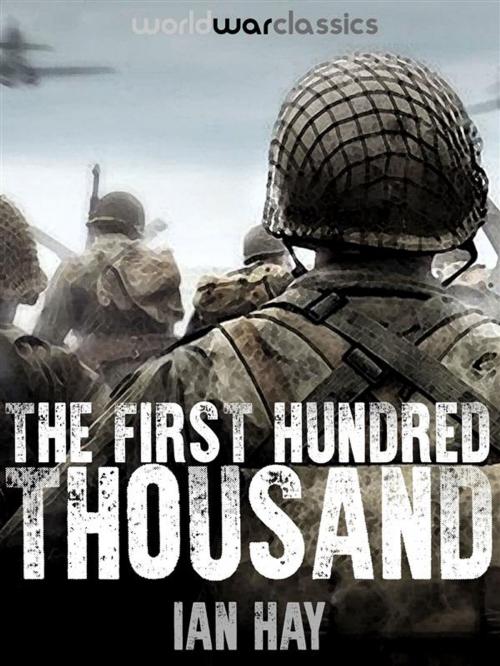| Author: | Ian Hay | ISBN: | 9788827570418 |
| Publisher: | World War Classics | Publication: | February 14, 2018 |
| Imprint: | Language: | English |
| Author: | Ian Hay |
| ISBN: | 9788827570418 |
| Publisher: | World War Classics |
| Publication: | February 14, 2018 |
| Imprint: | |
| Language: | English |
The First Hundred Thousand tells the story in novel form of an infantry unit of Kitchener's volunteer army from its formation in August 1914 to its recovery after its first great battle - Loos in September 1915. Told by Ian Hay Beith in a style of humour that rings strange to the modern civilian ear, it is perfectly in tune with that mood that British soldiers from Hastings to Basra have relied upon for support when only humour is left to counter the absurdities of military service. It could be the Catch-22 of World War 1.
The unit, in fact the 10th Argyll and Sutherland Highlanders, formed part of the 9th (Scottish) Division which proved itself to be one of the toughest and most reliable Divisions in the Army on the Western Front. The author not only captures the mood of the times but also the character of the unit and of its officers and men. It is easily recognisable by anyone who has served in a Scottish Regiment of the British Army. The book stands with other prose descriptions of the conflict, in contrast to much of the poetry, as a tribute to the cause, the fight to prevent German hegemony in Europe, and the men that served Britain in arguably her darkest hour. Well worth reading for a flavour of how the war was perceived at the time by some of the less sensitive souls caught up in it.
The First Hundred Thousand tells the story in novel form of an infantry unit of Kitchener's volunteer army from its formation in August 1914 to its recovery after its first great battle - Loos in September 1915. Told by Ian Hay Beith in a style of humour that rings strange to the modern civilian ear, it is perfectly in tune with that mood that British soldiers from Hastings to Basra have relied upon for support when only humour is left to counter the absurdities of military service. It could be the Catch-22 of World War 1.
The unit, in fact the 10th Argyll and Sutherland Highlanders, formed part of the 9th (Scottish) Division which proved itself to be one of the toughest and most reliable Divisions in the Army on the Western Front. The author not only captures the mood of the times but also the character of the unit and of its officers and men. It is easily recognisable by anyone who has served in a Scottish Regiment of the British Army. The book stands with other prose descriptions of the conflict, in contrast to much of the poetry, as a tribute to the cause, the fight to prevent German hegemony in Europe, and the men that served Britain in arguably her darkest hour. Well worth reading for a flavour of how the war was perceived at the time by some of the less sensitive souls caught up in it.















